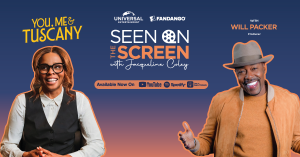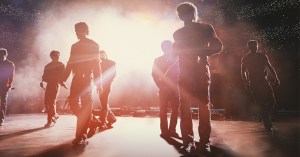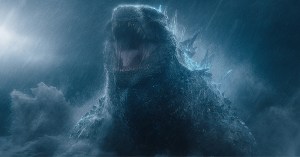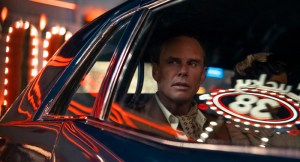Five Favorite Films with Gary Oldman
Plus, the star of Tinker Tailor Soldier Spy on his unusual performance -- and just why he feels a little smug about the movie's success.
As the movie industry plunges into the annual self-congratulatory farce of awards season, pause to consider this: Gary Oldman has never been nominated for an Academy Award. No, really — we checked. Not even a lousy Golden Globe. That may be about to change for the great British actor, however, whose unusually quiet (and seemingly effortless) performance as John le Carré’s enigmatic George Smiley in Tinker Tailor Soldier Spy has critics finally predicting a Best Actor nomination. Not that he needs it. Over a nearly-30-year career Oldman has delivered some of cinema’s most electrifying performances, in films like Sid and Nancy, Dracula, Prick Up Your Ears, True Romance, Léon and State of Grace, plus given invaluable supporting turns in blockbusters (Harry Potter, Nolan’s Batman) that would be all the poorer without him. We sat down with the surprisingly soft-spoken actor recently for a chat about playing the “jazzy” Smiley versus his “rock-n-roll” characters, why it’s conventional industry wisdom not to make adult dramas — and how the success of this particular one is so satisfying as a result. First up, here are Oldman’s five favorite films.
Apocalypse Now (Francis Ford Coppola, 1979; 99% Tomatometer)
Well, three Coppola movies. The list changes, but I always hold the three Coppola movies. Apocalypse Now — the sheer grandeur of it, and the originality of it.
The Conversation (Francis Ford Coppola, 1974; 98% Tomatometer)
I love Gene Hackman in The Conversation. I love that internal man who’s just, you know, very closed down.
The Godfather: Part II (Francis Ford Coppola, 1974; 98% Tomatometer)
With these three [Coppola’s] a great storyteller. Godfather: Part II, I just think it’s a master class in acting, production design, directing, lighting, composition. I think that if you were a film student, you’ve got — the way he tells the story, it’s masterful storytelling. And it never ever seems to disappoint.
Badlands (Terrence Malick, 1973; 99% Tomatometer)
I love Badlands because, I think, I like the interior — I love the story told through Sissy Spacek’s character. I think the telling of it is delicate. It’s just exquisite, that sense of the relationship seen through her; as if she’s telling one story and we’re witnessing another.
Ratcatcher (Lynne Ramsay, 1998; 84% Tomatometer)
Switching from that to a small indie movie, a Lynne Ramsay movie called Ratcatcher — I just think it’s a masterful piece of filmmaking. I mean, there’s Taxi Driver, there’s Raging Bull… there’s even — I love King of Comedy. Then there’s Kubrick; the list goes on and on. So there’s many, many, many — but off the top of my head, that would be five.
Next, Oldman on “putting on” his character forTinker Tailor Soldier Spy and the satisfaction in being a part of a successful adult thriller.
It’s interesting you mention The Conversation, and the interior nature of Gene Hackman’s performance as Harry Caul. Was the insularity of George Smiley something that appealed to you, given you’re well known, at least in the US, for more brash, extroverted roles?
Gary Oldman: Yeah. Well, you’ve got such a great piece of writing — it nearly always comes down to that. I always think that if you break a sweat you’re working too hard, and you’re often trying to support the material — you’re holding it up with the pyrotechnics, or just technique. Here, you always felt that you were so supported by a great text — and the subtext, the book — that you felt that you could bring it with you. It lived with you, and you could bring it to a scene. So, where obviously they’ve had to throw out 300 pages of this book and reduce a scene to a composition and four lines and a look, you always felt that you were never out there like a cork on the water, you know. You had a base, a story, a life that you could always bring to a scene. In essence, it’s telling the story in a very shorthand way.
[Long pause] You know, you often, as an actor, with those sort of emotional, kinetic parts that you play, there’s a cloud that sort of comes over your day. You get to work in the morning and it’s almost as if you’re at the base of a mountain, and you’re looking at the peak and you think, “I’ve got to get there today.” And you’re digging and going to the well of whatever it is to find it, and it’s like rock-n-roll, you know — you gotta burn from the first bar, and just explode. With Smiley, it’s more like jazz: you kind of get to the solo — but you find it. [Other roles] would always haunt me. “Terrify” is not the right word; you’d just get in there and look at that peak and go, [deep breath] “I’ve gotta pull something out of the bag today — I’ve gotta go to a place.” I loved George because, in a way, all that work — whatever emotional terrain you had to navigate — it was all done before you get there. It was somewhat of a relief for me as an actor.
It’s a very different approach for you, then.
Yeah, to be able to just sort of put on that suit — to sort of “put him on,” and then just rest back in a chair.
Did you look at Alec Guinness’s performance as Smiley at all?
I only remember it from television in ’79.
How much of the performance is, as you say, “putting him on” — choosing the right glasses, getting the hair right?
Well the silhouette that you see, when you look in the mirror, is very important — because there’s a physicality to it, how you put a person together and find him. First of all you’ve got the book; you know, it was really one-stop shopping, because it was the book, the script and le Carré, who we had access to if we wanted. So I spoke to him. He had been in MI5, and anything that I wanted to know in and around the book, I could just ask him questions about what Smiley would have done and what he was like in the field. So we’re seeing, in a way, all these scenes sort of start in the middle; there’s life that you can actually bring to it before they say action. [Director] Tomas [Alfredson] sent me a photograph of Graham Green in the ’40s, looking rather suave with a cigarette and a Mackintosh, and he liked the image of him; and that was sort of the beginning of the shape, or the silhouette of Smiley. If the material is good, all the clues are there. It really does come down to how good it is. And it’s subtextual, because it’s grown-up stuff — it’s adult drama. I’m rather happy that we’ve had a success with this film [in the UK] and we’re riding in on that wave. We’re coming in on a wave of box-office success, and it’s the third rail, you know — adult drama is the live rail that you’re not supposed to touch. There’s this sort of unchallenged industry wisdom nowadays where they say, “Oh, you can’t do adult drama,” “People don’t like it,” and “There’s no audience for it.”
That’s pretty alarming. Do you hear it often?
Yeah, you hear this. It’s very hard to get money. “What’s it about? Hmmm, I don’t know. I don’t know whether you can get that financed.” And so much so that, I mean, [Tinker Tailor producers] Working Title, who have sort of a deal with Universal — they have a first-look deal — didn’t want to do this movie [at first], and for obvious reasons. It’s a bit of a gamble. It doesn’t pander to Bond and Bourne and those types of movies. There’s no gunfire, really, in it, or explosions. It’s a very sort of slow-paced thriller.
Which is why it’s so great that it has been a success at the box-office.
Well yeah… and I feel kind of a little smug about it.
I think you’re completely entitled to.
Yeah, and I have no horse in the race. It’s not like I’ve got a percentage or a back-end and things if it does well. I don’t see any money from that. It’s just satisfying.
[Executive producer Douglas Urbanski wanders into the room]
Don’t you think it’s satisfying that people in the UK went and saw this movie? All those f-ckers that said, “Don’t make adult drama.”
Douglas Urbanski: Oh, it’s the third rail! We’re not supposed to make adult films. We never knew if one person was gonna buy a ticket, or ten, or one hundred. And they tend to think — especially when it comes to America — that the press and the critics and the audience are gonna be stupid. We don’t know the answer to that ’til it opens. But if the adult drama is to survive, you know — they’re impossible to finance.
GO: Yeah, I was just saying; they’re impossible.
Tinker Tailor Soldier Spy is in theaters now.






